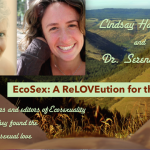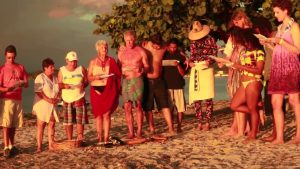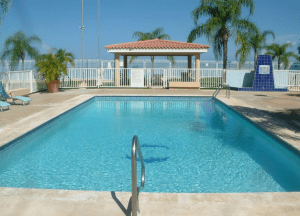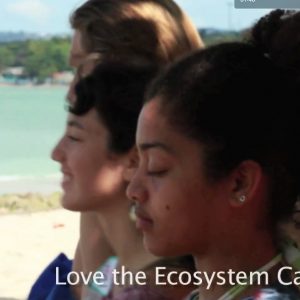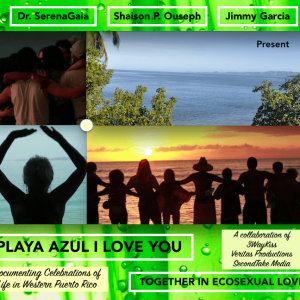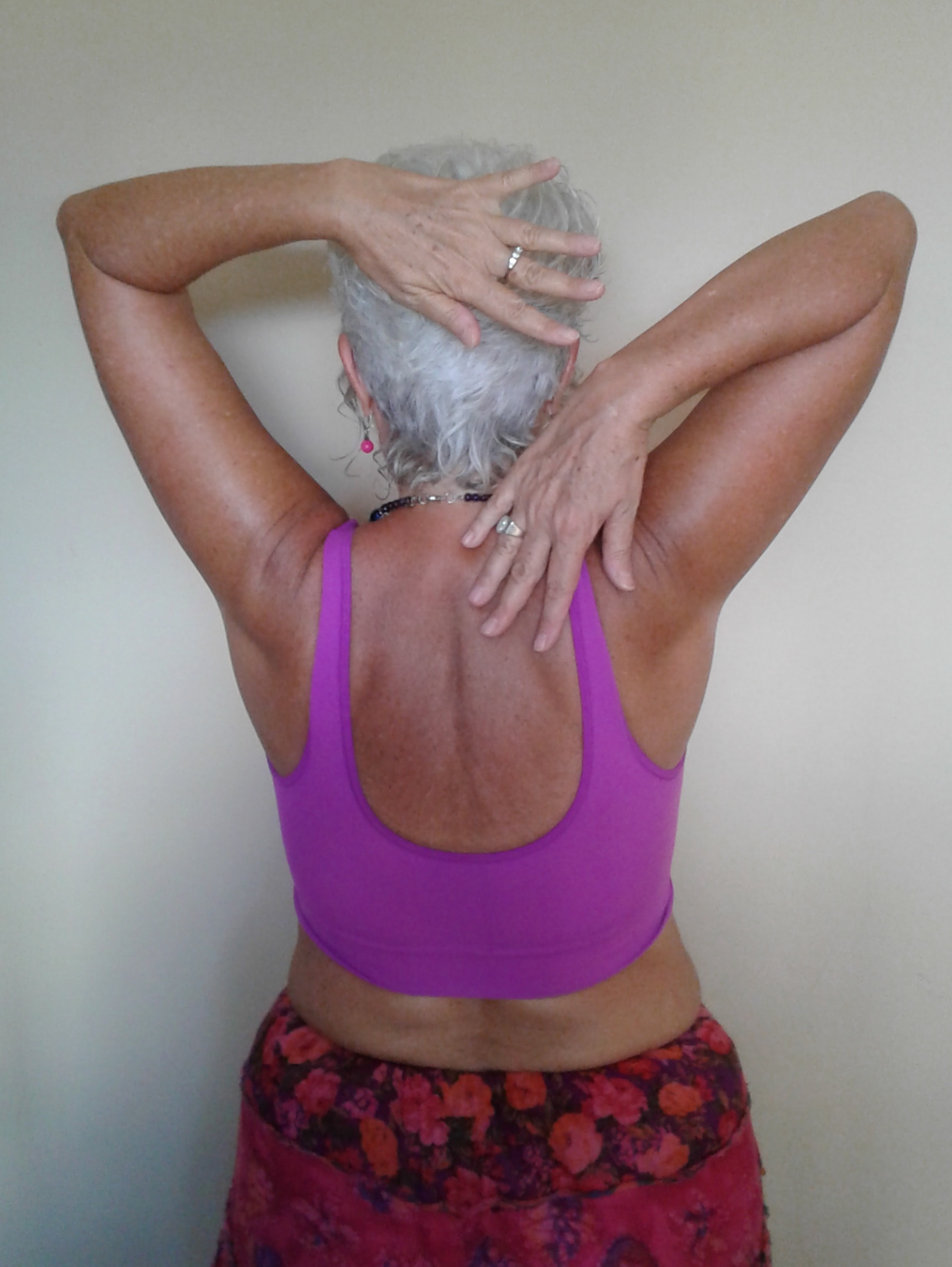
Dear Fellow Educators–
This post documents the experience that ended the most torturous year in my academic career, 2014-15, and its subsequent effects. The documents I filed at the time are on record in the highest offices of the campus.
When mobbing is legal people will resort to it to attack those weaker than themselves. In Puerto Rico, I learn, the only female governor, Sila Calderon, tried to introduce legislation against it. But. You guessed right: she was mobbed.
When mobbing is legal, people will use ideas and opinions in the public domain to feel that they have permission to act violently against those who represent perspectives different from what those ideas represent.
For example, when I first presented my proposals for hybrid modalities to my department, a pandemonium erupted. Several colleagues started yelling in Spanish, “you’re not qualified,” others started nervously pacing the room to assuage anxiety, others yet tried to ask questions in English and their voices were covered up by the yelling ones. Some female faculty went to the hallway to breathe fresh air. I was cornered on the stage, feeling lynched while the chair fell silent. The proposals were never considered at that time.
I wrote an Affidavit in Spanish that described the scene in minute detail and filed it with the highest authorities on campus. Then I filed another with more background. One year later it was finally possible to consider my first proposal in a calm and respectful manner.
One of the philosophies whose effects are visible in the mobbing I suffered is, as I’ve more recently learned, the philosophy of cercania, nearness, which privileges the local and the presential at the expense of everything else.
On a small island where people are per se afraid of novelty and foreigners, this can be very damaging. The geophysical nature of islands is what creates that sense of being surrounded by waters which makes everything non isleno muffled and remote.
The mobbing I suffered impaired my mental capabilities for quite sometime. It made my body/mind reactive to Spanish, a language I otherwise use quite well, because that’s the language against whose violence I could not defend myself.
For quite sometime, it made impossible for me to sustain the long-term attention required of peer-reviewed research.
Finally, it weakened my personal ecosystem to where I suffered a fall while traveling to Rome, Italy, one of my research arenas where I also visit family, to the point that I fell on top of myself, with the left arm extended under my own weight.
The fracture of the radial head that resulted in the affected elbow turned out to be irreparable. The entire movement of the elbow was at one point blocked. Eventually, some 65-70 percent of this movement was recuperated via Tuina Chinese therapies and India’s Auyrvedic therapies, all at my expense for about $ 7000.
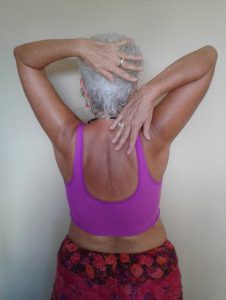
The remaining percentage is not subject to recuperation, orthopedic doctors tell me. The difference can be observed in these images. It is a permanent disability that’s not severe per se, but quite substantial nonetheless.
I am now in the process of having the entity of this disability verified by the authorities, so I can receive the proper protections and respect. I am also observing my own inner transformation as I accept my new body and its mild deformation as a result of my work. It is a humbling and sensitive process.
As I am in this process, I am also tremendously enjoying the new relationship with students made possible by the hybrid modality.

I love the vibrant discussions when we get together presentially and discuss the texts we’ve read. It’s analytical observation at its best.
And I love how they learn how to learn online as they attend modern history lectures on You Tube and engage in taking complex, probing, soul searching, wide ranging, and profoundly thought provoking tests.
When I teach the Humanities from the Point of View of Love, I want the experience of students in the course to match the universal theme chosen. I’ve practiced that thematic approach for over ten years. Ever since we reformed the course from an all-out canonical, Allan Bloom type of litany of works by the (in)famous “dead white males,” to one that accommodates for the diversity of human experience and endeavor.
I chose the theme of love back then, when we opened up to thematic approaches as recorded in the document at this link. And now with the hybrid modality, that alignment of theme and experience of learning is coming to fruition. Yay!
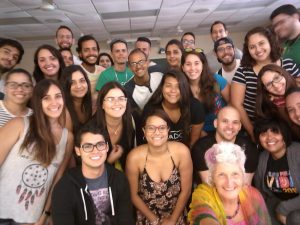
There are practical advantages as well. How relaxing for my half crippled elbow not to have to gesticulate over and over repeating the same lectures till I sound like a broken record. Students can refer to a standard version and be sure that exams correspond to what’s been really taught!
The series of online lectures on modern history from the point of view

of the people and the Earth is available at this link to the entire world. Talk about cercania. It’s a small planet after all! The blue dot.
With my mental joy restored, my creative energies have resurged as well. Amorous Visions is the study of Italian cinema that took me to Connecticut some four years ago. The first chapter came complete in early September, when I felt some peace was achieved around me in relation to my choices. I miss all the foreign colleagues who’ve been bashed to silence or have left for more friendly shores where cercania does not reign.
“Ecologies of Love and Toxic Ecosystems” is perhaps my favorite among all my studies of an academic nature. I contacted the editor of a Deleuzian journal. It’s peer reviewed and open source, my favorite style because it is scientifically reliable and accessible to all.
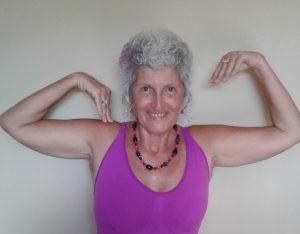
She got excited and asked for the submission. I said, “it’s over 14,000 words, are you prepared?” She said “yes.” I sent it. Two days later here’s what I got: “We read your essay with great interest and like it very much!” After one round of blind review, they “intend to include it in the next issue.” Wooow!
I felt: “Well Serena it was worth while to live to be over 62 years old even with a half deformed elbow, and be active in research and scholarship for over 30 years, if you’ve learned your job so well!” “Can the energy of love survive in toxic ecosystems? ” asks the article’s meta-question. The answer is “yes, as it becomes love for love or erotophilia.” They got it. “Your fountain, Serena,” I told myself, “is still pulsating with vital energies.” It was an overdue joy!
The Isla del Encanto where mobbing is legal is full of adventures, academic and not, that reverberate in the distance and presentially with the energies of life around the globe. Can we welcome the energies that will make that encanto sustainable?
As an educator, I love to share knowledge. ABE: always be educating, as my sex-positive educator friends say. Here are my lessons for the day:
I have angels. Mobbing can be avoided when administrations are aware of what it is and how it happens. When I was mobbed, angels sent me a manual about it so I could identify it. The manual is available at this link. Enjoy!
Mobbing results from conflict–unresolved conflict. Conflict can be resolved by applying the process of generating consensus from conflict itself, as explained in the manual On Conflict and Consensus, by C. T. Butler and Amy Rothstein, two founders of the horizontal democracy movement Food not Bombs. The book is available at this link. May it bring the genuine consensus that makes agreements sustainable to our learning communities. Enjoy!
Memories come back. My loving friend C.T. Butler used this book when he came from far away to lead the first retreat the Humanities Department ever had, a two-day, in 2005, or was it 2006? He was an angel from afar I called here to save us as I saw the disarray. I was new. The chair then took the credit. That retreat was really a blessing that energized everyone as the department found its true north and kept the steady direction for a good while.
This time others are planning a retreat, or Coloquio. Humanities, they call it. I feel terribly scared that the scapegoating will continue. I want to duck the attacks and save myself.
Or, I want to be treated like a human being and not a criminal under special surveillance or a scapegoat.
“How would that look like?” you may ask. It will look like a space where the current chair and direction take responsibility for creating safety for everyone. For example: It will look like the event takes place in a space where
- They establish a space of communication based in freedom of expression in language choice.
- They take charge for openly recording all meetings in the Coloquio and for providing online access to the audiofiles thereof in a timely way?
- They take responsibility for publishing all submitted syllabi and other relevant documents to the department’s website well before day of the Coloquio.
“How would that encourage you to participate?” A legitimate question.
- I would know that the freedom of expression of ALL those who choose to practice academic freedom will be protected and valued as the essence of what dialogs, or colloquia, are about.
- I would know that there will be freedom of expression in ideas as well as in language choice, between, for example, English and Spanish, as we did at that time by virtue of a translator.
- I would know that people will put their cards on the table: what are colleagues teaching in their courses, what is the content of their syllabi, how can I study that content as detenidamente (attentively) as my syllabi have been studied when, after ten years of practice that went unobserved, it was found that, lo and behold, the theme I’ve chosen for my approach to the Humanities is Love!
“Is that just for your protection?” Good point.
These measures will, I believe, make the Coloquio safe for all those colleagues who choose to practice academic freedom and not only the “prominent” members whose fears keep the department from evolving. My presence requires them and other genuine educators will appreciate them.
“Hopefully, that’s exactly what will happen.” I’ll stay tuned for this manifestation.
“But education is more than just a bunch of courses. No?”
As a member in good standing of the sex-positive education community and movement, and as a leader in the Ecosexual movement, I naturally also want to bring to students the know how, the skills, the arts to practice love in their lives to the extent that it feels safe and healthy at any given moment to do so.
I can manifest a whole bunch of angels who will fly to our shores to teach the arts of truly conscious and aware consent and negotiation in interpersonal relationships.
I’ve negotiated the exclusive for a special type of event called Practices of Ecosexuality at UPRM. We had a very successful first run last year. This year the call is out for Practices of Ecosexuality and Sex-Positive Education. I get inquiries all the time while we wait for the proper venue to host the event. Do I have to tell them we’re scared of angels who come from far away? I hope not.
This while the millenials–here like everywhere else–speak English better than their professors because they learn online and are branching out through the social media to the entire globe. Would college be a way to scare them about the world? Ridiculous, no? I love the millennials because they are a game-changer generation. They won’t adjust. They’ll make change happen. It’s a pleasure to teach them how, with love.
They tell me the department is seeking its “true north” after a crisis that was endemic, deeply seated, and devastating. In Puerto Rico we’re in a debt restructuring situation where throughout the UPR system we’ve been asked to get rid of expensive red tape and bring our curriculum into the 21st century. The AGB Report is here. Crises are powerful opportunities for change. Are we going to take it? I hope so.
A department that sheds its fears can become capable of imagining a sustainable future for itself. I presented a plan for action when given a chance. It’s available at this link for everyone to access and enjoy.
Instead of being trapped in fear we can be a source of learning for love. Shall we?
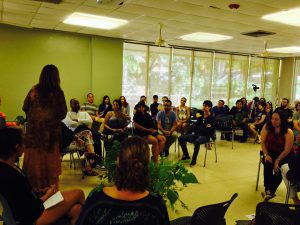
In love,
Dr. SerenaGaia
